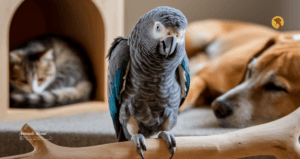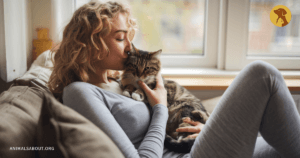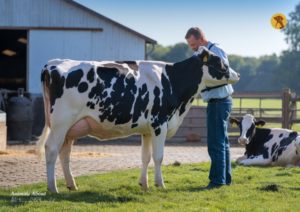Seeing your furry friend with a runny nose can tug at your heartstrings. A sneezing cat with watery eyes or nasal discharge might be dealing with a cold or an upper respiratory infection (URI). While a trip to the vet is always a good idea for persistent symptoms, there are some cat runny nose remedies you can try at home to help your feline feel better. As animal lovers, we want to share safe, natural, and easy ways to soothe your cat’s sniffles while keeping their health first. Let’s dive into some vet-approved home care tips for sick cats!
Why Does My Cat Have a Runny Nose?
Before trying any remedies, it’s helpful to understand what might be causing your cat’s runny nose. Common culprits include:
- Feline Upper Respiratory Infection (URI): Often caused by viruses like feline herpesvirus or calicivirus, URIs are like a cold in cats, leading to sneezing, nasal discharge, and watery eyes.
- Allergies: Pollen, dust, or even certain foods can trigger a runny nose or cat sneezing.
- Foreign Objects: A blade of grass or dust stuck in the nose can cause irritation.
- Dental Issues or Sinus Problems: Less common but possible causes of nasal discharge.
If your cat has a fever, stops eating, or shows green or yellow discharge, see a vet right away. For mild cases with clear discharge, these natural treatments for cat colds can offer relief.
Top Cat Runny Nose Remedies to Try at Home
Here are some safe treatments for Cat Runny Nose Remedies symptoms that are simple to do at home. Always monitor your cat’s response and consult your vet if symptoms worsen.
1. Keep Their Nose Clean
A crusty or runny nose can make your cat uncomfortable. Gently clean their nasal area with a warm, damp cloth or a pet-safe wipe. Be slow and gentle cats aren’t fans of face-cleaning! This simple step in home care for sick cats can help them breathe easier and feel refreshed.
2. Try Steam Therapy for Cats
Steam is a fantastic cat congestion relief method. The warm, moist air can loosen mucus and soothe irritated nasal passages. Here’s how to do it safely:
- Bring your cat into the bathroom while you run a hot shower. Let them sit in the steamy room (not in the water!) for 10-15 minutes.
- Alternatively, use a humidifier in a small room where your cat relaxes. Keep it clean to avoid mold.
- Never force your cat near hot water or steam safety first!
This DIY remedy for feline flu mimics how we feel better after a steamy shower when we’re congested.
3. Boost Hydration
A hydrated cat fights infections better. Make sure your cat has access to fresh, clean water at all times. If they’re not drinking much, try these holistic cat health tips:
- Offer wet food, which has higher water content.
- Add a splash of low-sodium chicken broth (no onions or garlic) to their water to tempt them.
- Use a pet water fountain many cats love running water.
Hydration supports their immune system, helping with feline respiratory infection recovery.
4. Create a Stress-Free Environment
Stress can weaken your cat’s immune system, making cat cold symptoms worse. Cats with URIs or colds need a calm space to heal. Here’s how to help — especially if you have a breed prone to sensitivity, like those listed in our guide to low-shedding cat breeds.
- Set up a cozy, quiet spot with their favorite blanket or bed.
- Avoid loud noises or sudden changes in their routine.
- Spend extra cuddle time (if they’re up for it) to make them feel secure.
A relaxed cat is a healthier cat, and this is a key part of boosting a cat immune system naturally.
5. Top Cat Runny Nose Remedies to Try at Home
Some herbal remedies for cat congestion can support healing, but always check with your vet first. One safe option is L-lysine, an amino acid supplement that may reduce the severity of feline herpesvirus symptoms. It’s available as a powder or treat from pet stores.
Important: Never use human herbal teas, essential oils, or over-the-counter meds without vet approval they can be toxic to cats.
6. Encourage Appetite
Cats with a runny nose often lose their sense of smell, which can make them picky eaters. A lack of appetite can slow recovery, so try these non-medical cat cold solutions:
- Warm their food slightly (not hot) to enhance the aroma.
- Offer smelly foods like tuna or sardines (in moderation, vet-approved).
- Hand-feed small amounts to encourage eating.
A well-fed cat has more energy to fight off cat upper respiratory infection symptoms.
7. Monitor and Watch for Warning Signs
While cat nasal discharge remedies can help, you need to keep an eye on your cat’s overall health. Contact a vet if you notice:
- Lethargy or refusal to eat for more than a day.
- Thick, colored discharge (yellow, green, or bloody).
- Difficulty breathing or open-mouth breathing.
- Symptoms lasting more than a few days.
These could be signs of URI in cats that need medical attention beyond home care.
When to See a Vet
While these vet-approved home remedies are great for mild cases, a runny nose can sometimes signal something more serious, like a bacterial infection or chronic condition. A vet can run tests, prescribe antibiotics if needed, or recommend specific cat flu home remedy options tailored to your cat. Don’t hesitate to reach out if you’re unsure your cat’s health is worth it!
Preventing Future Runny Noses
Once your cat is feeling better, take steps to keep their nose clear and their immune system strong:
- Vaccinations: Keep your cat up-to-date on shots to prevent severe URIs.
- Clean Environment: Regularly wash bedding, litter boxes, and food bowls to reduce germs.
- Good Nutrition: Feed a balanced, high-quality diet to support holistic cat health.
- Limit Stress: Maintain a stable routine and avoid overcrowding if you have multiple pets.
These habits can reduce the chances of cat sneezing and runny nose episodes in the future.
Wrapping Up: Final Thoughts on Cat Runny Nose Remedies
A runny nose doesn’t have to keep your cat down for long. With these cat runny nose remedies, you can provide comfort and relief right at home. From steam therapy to gentle nose-cleaning, these natural treatments for cat colds are easy to try and safe when done carefully. Always keep your vet in the loop, especially if symptoms linger or worsen.
Remember: Always consult your veterinarian before starting any treatment. Early care is key to preventing more serious health issues.💬
Gentle nose cleaning, steam therapy, extra hydration, a calm environment, and vet-approved supplements like L-lysine are great natural treatments for cat colds to try safely.
If your cat has thick, colored discharge, stops eating, or struggles to breathe, it might be a feline respiratory infection. Contact a vet if symptoms last more than a few days.
Yes! A steamy bathroom session for 10-15 minutes can provide cat congestion relief by loosening mucus just to keep your cat safe and away from hot water.
L-lysine is a vet-approved option to ease cat upper respiratory infection symptoms, but avoid human herbs or essential oils unless your vet says it’s safe.
Disclaimer: This article is for informational purposes only. Please consult a veterinarian before trying any remedies, especially if your cat’s symptoms worsen or persist.







